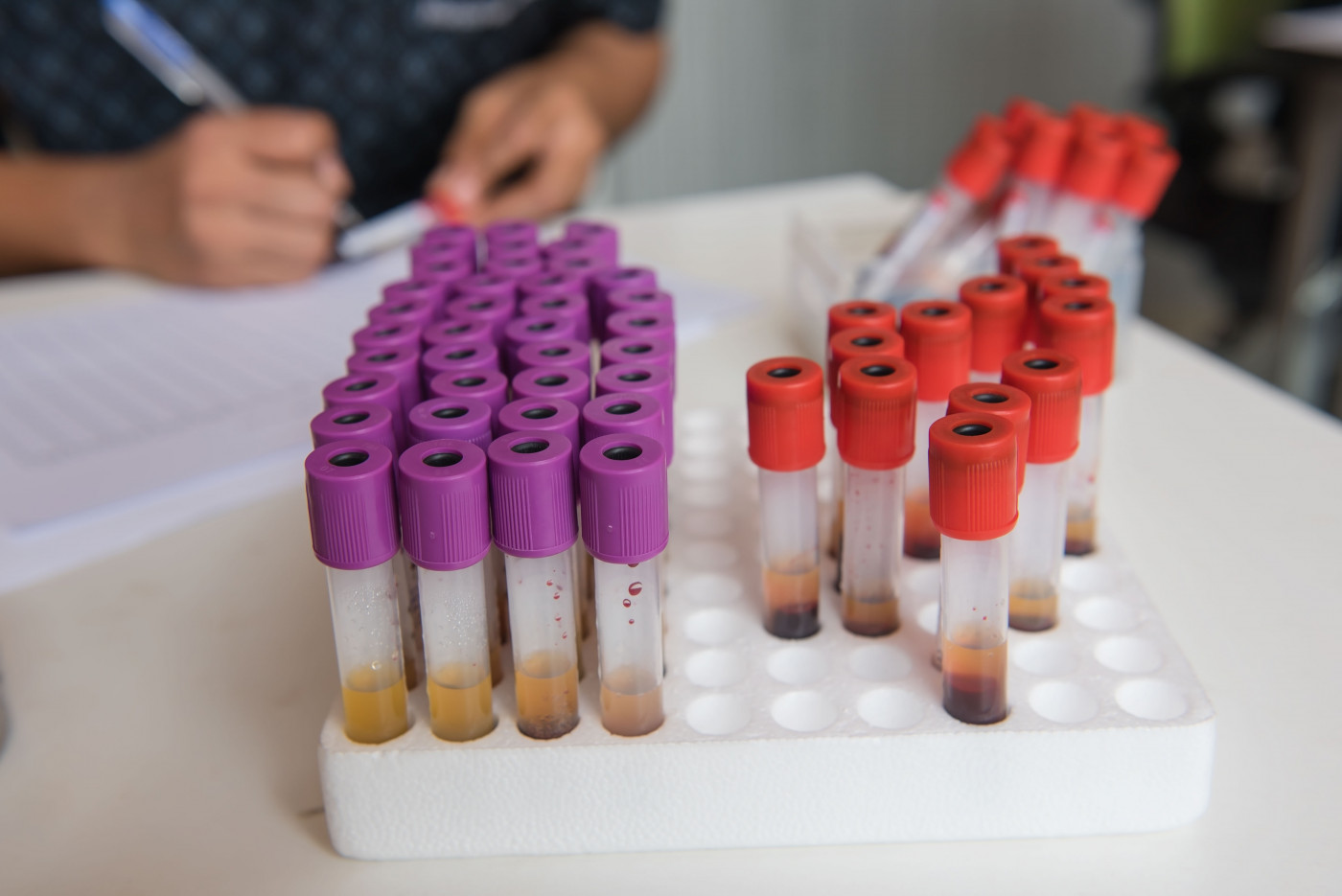KIF5A Protein Levels in CSF May Act as Biomarker of Progressive MS
Written by |

The levels of KIF5A protein are elevated in the cerebrospinal fluid (CSF) — the liquid surrounding the brain and spinal cord — of people with progressive multiple sclerosis (MS) and, further, are correlated with disease progression measures in patients with relapsing-remitting MS (RRMS), a new study shows.
These findings suggest that KIF5A may be used as a CSF biomarker of progressive forms of MS, but larger studies are needed to confirm this, the researchers noted.
The study, “KIF5A and the contribution of susceptibility genotypes as a predictive biomarker for multiple sclerosis,” was published in the Journal of Neurology.
MS is an inflammatory and neurodegenerative disease characterized by the immune system’s wrongful attack against myelin, the fatty layer that protects nerves and is lost in MS. With the progression of the disease, patients experience clinical relapses, which are associated with inflammatory lesions in the central nervous system or CNS, comprised of the brain and spinal cord. Clinical relapses also are linked with neurological decline.
Due to its complex nature, it remains challenging, at the time of disease onset, to accurately predicting how MS might evolve. New biomarkers are thus required for predicting prognosis and monitoring the effectiveness of treatments.
Neurofilaments, key structural proteins of nerve fibers, are thought to be a reliable biomarker for damage to axons, which are nerve cell projections. The KIF5A protein is part of a family of proteins involved in the axonal transport of neurofilaments.
In previous studies, researchers at the University of Bristol, in the U.K., and their colleagues found that the levels of KIF5A were reduced in the brain tissue of deceased MS patients. Moreover, single nucleotide polymorphisms (SNPs) — a difference in a single nucleotide, the building blocks of DNA — in the chromosome region that contains the gene coding for KIF5A appeared to influence the risk for MS.
Now, these researchers assessed the prognostic value of measuring KIF5A in the cerebrospinal fluid, or CSF, of patients with MS from two distinct biobanks in the U.K. — one located in Bristol and the other in Cardiff.
The Bristol group was comprised of 38 people with RRMS, six with primary progressive MS (PPMS), and three with secondary progressive MS (SPMS). Those with RRMS were significantly younger, with a mean age of 38, than those with PPMS and SPMS, who had a mean age of 52.
In addition, 49 cases of non-inflammatory neurological disease control (NINDC), such as idiopathic intracranial hypertension (IIH), were included as the control group.
The team assessed the differences in the levels of KIF5A in the CSF of MS patients in the Bristol group versus the IIH controls.
The results showed that KIF5A protein levels were significantly higher in both RRMS and progressive MS patients when compared with controls. In a multivariate analysis, however, the difference remained statistically significant only for progressive MS but not RRMS.
Among the patients in the Cardiff group were 27 with clinically isolated syndrome (CIS), 67 with RRMS, six with PPMS, and five with SPMS. CIS is the first clinical manifestation of diseases characterized by the inflammatory loss of myelin; it often precedes the development of MS.
The levels of KIF5A in the CSF were significantly higher in progressive MS patients compared with those with RRMS. A multivariate analysis confirmed this difference, as well as one in the levels of CSF KIF5A between CIS and progressive MS.
Additionally, in RRMS patients whose disease progressed over a two-year follow-up period, there was a significant positive correlation with an increase in KIF5A levels.
Next, the researchers used the Cardiff group to investigate whether genetic susceptibility for MS had an influence on KIF5A levels.
The team analyzed two SNPs, named rs703842 and rs12368653, both known to increase susceptibility for MS. Statistical analysis showed that rs703842 had a significant effect on KIF5A levels, meaning patients with this SNP tended to have higher levels of KIF5A.
Based on the results, the researchers wrote: “We have found significantly higher levels of KIF5A expression in CSF from progressive MS cases, validated in two independent CSF biobanks.”
Moreover, the levels of KIF5A correlated with MS severity in RRMS patients who had documented disease progression for two years, “suggesting KIF5A may have future prognostic potential in predicting disease progression,” the team said.
Further studies with larger patient groups are needed, however, to validate KIF5A as a prognostic factor and assess its link to MS genetic susceptibility.


